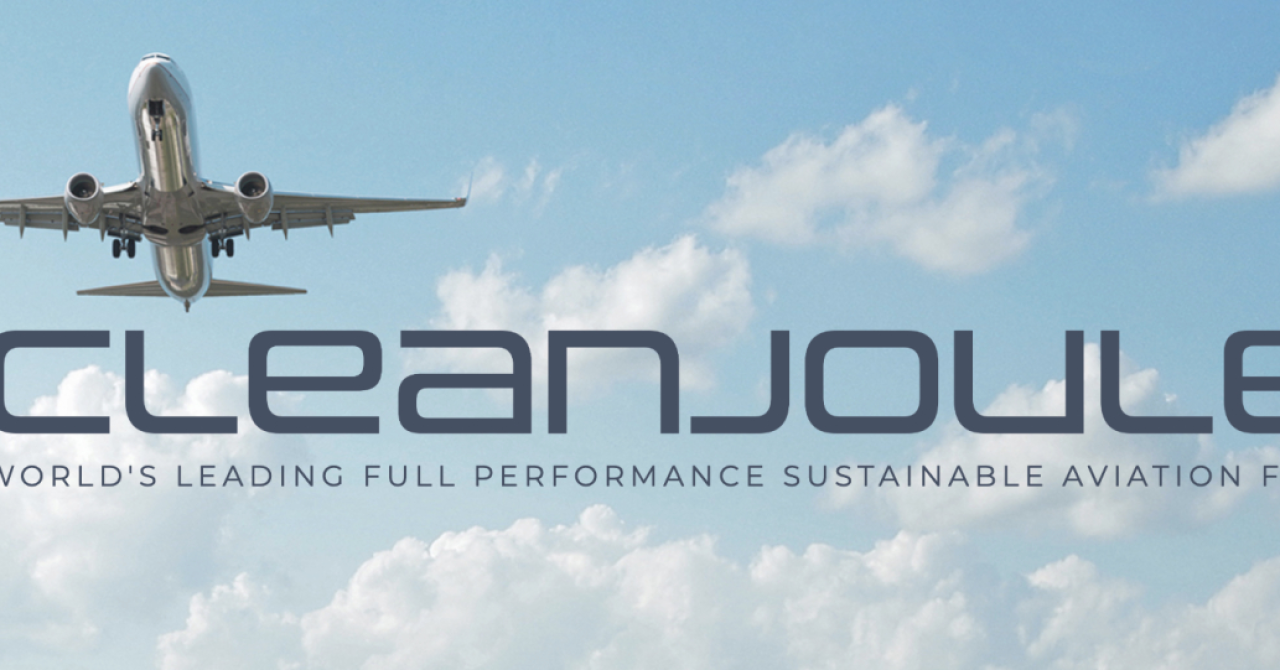CleanJoule, a US based startup focused on the production of Sustainable Aviation Fuel (SAF), announced at the end of May 2023 a US$50 million investment round led by the principals of Indigo Partners, a U.S.-based private equity firm.
The round also included participation by GenZero, a decarbonization-focused investment platform company of Temasek based in Singapore, Cleanhill Partners, a U.S.-based private equity firm focused on decarbonization and three airlines – U.S.-based Frontier Airlines, Europe-based Wizz Air and Mexico-based Volaris.
Funds raised from the round will support the further development of CleanJoule’s technology to produce high-performance SAF from agricultural residues and other waste biomass more cost-effectively.
The funding round marks an important chapter in the global effort to mitigate carbon emissions and deliver meaningful climate action.
SAF, a biofuel used to power commercial aircraft but with a smaller carbon footprint, could potentially contribute up to 65 percent of the reduction in emissions needed by the aviation sector to reach net zero in 2050, according to the International Air Transport Association.
Depending on the feedstock and technologies used to produce it, SAF can reduce life cycle greenhouse gas emissions dramatically compared to conventional jet fuel.
As part of the consortium’s investment, Frontier Airlines, Wizz Air and Volaris have signed binding agreements to purchase up to 90 million gallons of SAF. The principals of Indigo Partners will also receive a board seat on CleanJoule’s Board of Directors.
“The aviation industry presents a key frontier in carbon emissions mitigation. There has never been a more crucial time for us to lead the change than through viable sustainable fuel alternatives. As we advance on the commercialization of our fuel technology, CleanJoule is well-positioned to scale the supply of SAFs in the market and shorten the runway in the transition towards a greener aviation industry. We are proud to have the support of our new investor partners, who not only share our mission but who have chosen to place their capital and trust in us to drive the transformation of global aviation”, says Dr. Mukund Karanjikar, co-founder and chief executive officer of CleanJoule.
CleanJoule Inc., headquartered in Salt Lake City, Utah, is focused on developing a breakthrough technology to produce superior and cost-effective SAF. CleanJoule’s manufacturing process offers high efficiency, feedstock flexibility, and a high degree of decarbonization.
“Indigo Partners and its portfolio airlines are committed to decarbonizing air transportation, and the investment in CleanJoule will increase the supply of SAF to the industry. The company has developed a unique technology to convert abundantly available feedstocks into SAF with remarkable efficiency. We believe that CleanJoule will be a key player in the decarbonization puzzle of the aviation industry”, states Bill Franke, managing partner of Indigo Partners.
Indigo Partners is a private equity firm established by W. A. Franke in 2003 to pursue acquisitions and strategic investments in air transportation and related industries.
The firm has been a lead investor in the airline sector to include Tiger Airways based in Singapore as well as Spirit Airlines based in Ft. Lauderdale, Florida, and maintains lead investments in Wizz Air Holdings, Plc, a ULCC with multiple bases in Central and Eastern Europe; Frontier Airlines, a ULCC based in the US; Volaris Airlines, a ULCC based in Mexico; JetSMART, a ULCC based in Chile; Cebu Pacific, a ULCC based in the Philippines; Lynx Air, a ULCC based in Canada. Indigo is headquartered in Phoenix, Arizona.
At the same time, Frederick Teo, chief executive officer of GenZero, says that “Decarbonizing aviation requires solutions that can be adopted at scale. CleanJoule’s fuel technology relies on widely available feedstock – agricultural waste – to produce a sustainable biofuel that could be cost-effective at scale with better fuel economy. Its unique approach also allows for higher levels of substitution with conventional aviation fuel thus creating a greater decarbonization impact.”
 Oana Coșman
Oana Coșman












Any thoughts?